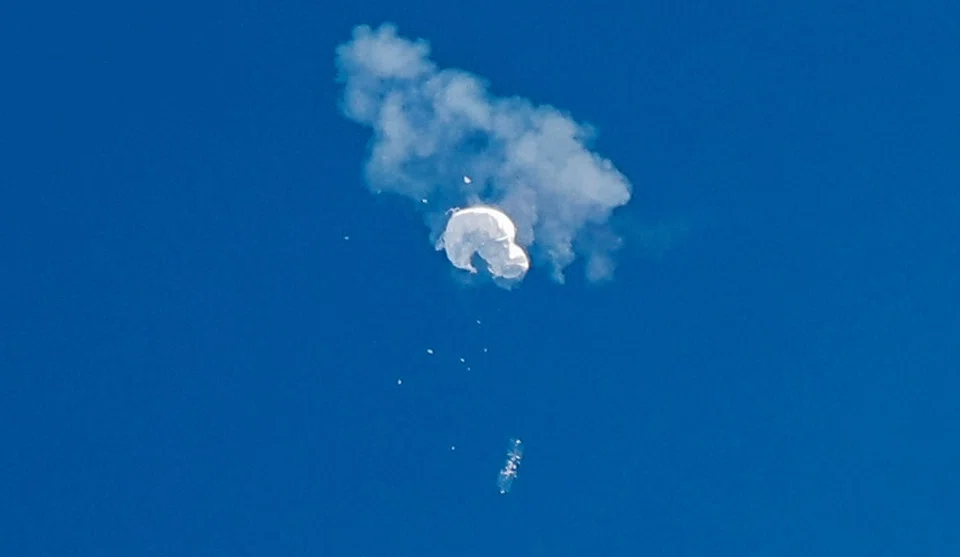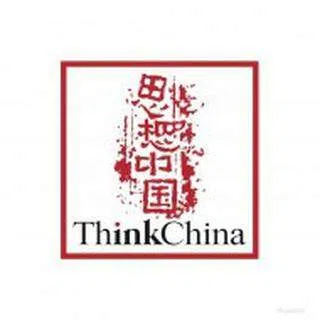A Chinese balloon derails US-China rapprochement
Commentator William He analyses reactions to a Chinese balloon being detected in US airspace, and US-China relations being hit by another cold snap. Are we going back to Cold War times?

US Secretary of State Antony Blinken's planned visit to China has been scuttled by a Chinese balloon flying over US airspace. Blinken called the act "a clear violation of US sovereignty". US Department of Defense Press Secretary Patrick Ryder agreed, saying "the balloon has violated US airspace and international law". However, the Chinese foreign ministry asserted that a Chinese civilian unmanned airship had made an unintended entry into US airspace "due to force majeure". A Chinese defence ministry spokesman also said that they "reserve the right to take necessary measures to deal with similar situations". American experts are not buying it and have urged the US military to ascertain the true mission of the flying object.
Undoubtedly, a Chinese balloon flying over US airspace at a sensitive time in China-US relations will draw much speculation and reactions.
Echoes of U-2 spy plane incident in 1960
For one, has the Chinese balloon brought us back to the 1960s? In the mid-1950s to 1960, US U-2 spy planes often entered Soviet airspace. Both sides were aware of the situation but kept mum about it. On 1 May 1960, a US U-2 spy plane was shot down while flying over Soviet airspace. The National Aeronautics and Space Administration (NASA) claimed in a statement that the plane was a weather research aircraft that had strayed off course. It was not until the Soviets displayed the wreckage of the U-2 that Washington realised that it was game over.
... unforeseen events can derail years of diplomatic efforts.

This happened during President Dwight D. Eisenhower's tenure, just weeks before the Paris summit between Eisenhower and Soviet Premier Nikita Khrushchev on 16 May 1960. Eisenhower took responsibility for the incident, and the meeting went ahead, but Khrushchev requested that Eisenhower apologise for the incident. In the event, Eisenhower refused to make a formal apology, but historians have generally praised him for his integrity and courage in taking responsibility during tense times. A lesson from this incident is that unforeseen events can derail years of diplomatic efforts.
Reality of a new Cold War
As the U-2 spy plane is a vestige of the Cold War, the Chinese balloon incident would inevitably remind people of the U-2. While China and the US have not admitted that they are in a new Cold War, their actions significantly affecting each other have been hostile and confrontational. For instance, the Joe Biden administration is attempting to cut off China's access to certain semiconductor chips in a bid to slow China's economic, technological and military advances - if this is not a new Cold War, what is? Must a hot war occur before one can trace its roots to the cold war that took place prior? I wonder what the politicians are thinking to tolerate such a situation and yet not admit to a de facto Cold War.
Secondly, why did a Chinese balloon hover over the US? History tells us that any move that a highly politicised country does that involves another country must have a patriotic mission. As such, the kind of patriotic mission that a Chinese balloon is on depends on the most important concerns both sides have in an era of China-US tensions. US defence officials told the media that the balloon was flying over sensitive sites and collecting information. One of the locations the balloon was spotted at was Montana, which is home to one of the three nuclear missile silo fields in the country, at Malmstrom Air Force Base.
Chinese society's logic is this: as long as the ends are right, the means are not important.

In response to the incident, Chinese State Councilor Wang Yi said, "We do not accept any groundless speculation and hype." In other words, he is saying that China will not engage in espionage activities. However, China's popular "unrestricted warfare" (超限战) narrative asserts that it does not matter if the country is indeed engaging in espionage activities, as long as it is patriotic. Chinese society's logic is this: as long as the ends are right, the means are not important.
... Chinese balloons have been found in US airspace for years, and it is intriguing why something that has been happening for so long is only being exposed now.
True threat low
Third, what does the US political response to the balloon show? The Pentagon's response has been calm. A high-ranking defence official said the US had prepared fighter aircraft including F-22s, ready to shoot down the balloon at an order from the White House. The Pentagon initially advised against doing so (before eventually shooting it down on 4 Feb), because of possible safety issues, and the fact that the balloon would have gathered limited information. Besides, Chinese balloons have been found in US airspace for years, and it is intriguing why something that has been happening for so long is only being exposed now.
The US government's reaction has been calm, without viewing the incident to be a serious threat to national security. Their confidence stems from the fact that balloons are not an ideal spy platform. They have to carry sensors to effectively gather information, but because they never return to base, there has to be some way for them to send information home. They can do so wirelessly, even to Chinese satellites above them, but so far there have been no reports on wireless communication by balloons. So, the US government possibly buys China's claim that the balloon had mistakenly flown into the US. Chinese satellites fly over the US every day, making balloons a less than intelligent way to gather information.
US congressmen have reacted far more strongly than the government.

Trigger for hawkish congressmen
US congressmen have reacted far more strongly than the government. Republican senator Marco Rubio said: "It's not a coincidence that this happens leading up to the State of the Union address, leading up to [Secretary of State Antony] Blinken's visit to China." He added that the Chinese always did "these sorts of things to humiliate the other side, project strength and send a message". He said America needed to wake up to the fact that China was a geopolitical competitor and adversary, their first since the end of the Cold War. Moreover, China was "a bigger and stronger adversary than the Soviet Union, which was a military superpower, but not an industrial, technological or economic power".
Senate Majority Leader Chuck Schumer said the Gang of Eight - the group of eight Republican and Democrat leaders from both chambers of Congress with access to the most sensitive and confidential information - would be briefed by Biden administration officials this week. House Speaker Kevin McCarthy tweeted: "China's brazen disregard for U.S. sovereignty is a destabilizing action that must be addressed, and President Biden cannot be silent." Clearly, Congress is putting pressure on the Biden administration.

The response of US congressmen is in line with the "groundless guesswork and speculation" that Wang Yi spoke of, and is completely in line with both US parties' extreme distrust of the Chinese government. In January 2023, Congress proposed three resolutions to challenge China - first, to resume formal diplomatic relations with Taiwan and end the outdated and counterproductive "one China" policy; second, to end Covid declarations; third, to revoke China's permanent most-favoured-nation status and return to the pre-2001 status quo. This incident of the balloon will trigger US congressmen to propose more resolutions against China.
Related: Global Security Initiative - China's solution to international security? | China's Global Security Initiative stoking regional tensions | Xi's Global Security Initiative: In pursuit of China's own interests and ambitions | Biden's National Security Strategy: An Asia-first strategy codified by Europeanists





![[Photos] Fact versus fiction: The portrayal of WWII anti-Japanese martyrs in Taiwan](https://cassette.sphdigital.com.sg/image/thinkchina/3494f8bd481870f7c65b881fd21a3fd733f573f23232376e39c532a2c7593cbc)